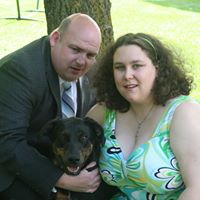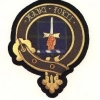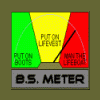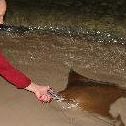Leaderboard
Popular Content
Showing content with the highest reputation on 02/11/2010 in all areas
-
2 points
-
I started the EMT program at PMA in Calgary in June 2006. Would rather have taken it in St. Albert as I live in Edmonton, however they didn't have enough applicants at the time so Calgary it was. We finished up around mid-September, had hospital practicums in Stony Plain the first week of October. I personally waited until the first week of January for my ambulance practicum, which of course pissed me off. The whole reason for me relocating everything was for the purpose of being able to write ACP in February, not in June as I recently did. I did however have a good practicum spot and an excellent paramedic preceptor, and was successful at ACP. My preceptor happened to have taken his medics at PMA, and I felt quite comfortable that he knew precisely what he was doing and knew his stuff. What you will find should you choose to take your EMT at PMA (St. Albert OR Calgary) is that they deliver a great program. They don't just teach you about how to treat a condition or disease, they teach you the how's/why's/what's about it, including how to treat and results of various tx's. Keep up with your studies, contribute intelligently in class and you'll end up with a fairly thorough EMT knowledge base. I am quite happy with the quality of education I have received from PMA as an EMT-A, and know that it will carry me forward one day into being a successful paramedic. Whether or not I choose to do my medics at PMA, well, I've still got a couple years to think about that. The administrative side of things however leaves a veritable plethora of questions unanswered, frustrations and concerns unaddressed, and a bad taste in one's mouth. (This is not unlike what I've heard about other smaller private schools). I didn't enjoy feeling like I was being bitched at if I called and someone had to answer the phone. One would think they had won the freakin' lottery if she was actually not "in a meeting" or even returned your phone call(s). Yes if you find yourself on Kim's bad side for whatever reason, time stands still and life becomes miserable at school. She is no different than a lot of people I've met in the industry, and our industry is one in which people eat their young. Sometimes we have to just smile and "take it up the ass". We each would of course as we further ourselves in EMS, make a conscious decision on how we treat the newbs and those who are perhaps not as quick on their feet. Kim is by far not my most favorite person in the world. She is however very intelligent, a great paramedic, and has been doing at least a few things right to make it where she is today. She won't baby anyone, but she does have her favorites as I think we all do. I personally think they favor the paramedic students as they pay far more for their course than we do, which makes it the "bread and butter" of PMA. Thing is, a lot of us EMT's who took our EMT at PMA will one day want to go further and go through the paramedic program. I know I will, and even now have narrowed the choice down between 3 schools with PMA being one of them. Not an instant decision for me due to the administrative experience as an EMT student being as crappy as it was. Good program however, so who knows. I've got time to think as this step is 2 years+ away for me. Gotta get a good solid grip on BLS before you do ALS. *pant pant* After all that babbling, if I were to rate my experience at PMA I'd give them a 10/10 for quality of education received. Expect to get your money's worth education-wise. They'd get a 3/10 for the administrative side of things. Thing is, someone is always going to piss you off at some point in this industry. I felt if I couldn't handle it at this level, how would I handle it later on? You have to decide which is more important ... feeling warm and fuzzy all over while you spend $5000+ on a course which teaches you nothing more than the underside of a stethoscope ... or getting a good solid education and learning to stand on your own two feet in one of the most difficult industries to enter, STAY & be HAPPY in. As for the textbook question, if I were to wager a guess it would be that the person wanted to see if they could find the books cheaper elsewhere?2 points
-
I think you missed the part about WE fund the extra costs to make their plan work ... lets hope this will tip the past apathetic membership to get seriously involved. The motion was successfully passed last AGM to carry 7 proxies per attending member almost a way to actually be a democratic representation ... ACoP just may see a rapid change of Council, perhaps a change of Registrar is in order too. The reputation for service to the membership is in need of a serious tune up IMHO.1 point
-
I just have a simple question. As we all know how ACP is with budgeting......quite simply..IS THE FEDERAL GOVERNMENT INSANE???1 point
-
I smell a bean counting rat. This has nothing to do with progression of the paramedic profession in Canada. This is entirely about controlling wages and allowing outside providers, who may or may not meet the same educational standards, to come into the country. I'm all for the development of a national regulatory body but this is not the way to go about it. If the federal government were actually interested in developing true national standards this funding would have been directed to the PAC. The PAC has already put in a tremendous amount of work towards the development of national standards with direct input from paramedics across Canada. Why are we content to let politicians with zero medical knowledge arm chair quarterback the direction of the paramedic profession? Its garbage and I refuse to support it. I refuse to allow an ignorant suit decide educational standards for a profession they know nothing about when they can't even hold power without proroguing parliament.1 point
-
Welcome my friend, welcome to the other side. Now, I know I'm going to be preaching to some of the converted here but still: If it is one thing that annoys me the most about EMS it's this American attitude of "BLS vs ALS" and its like you blokes think they are somehow an actual procedure to be carried out like splinting a broken arm "oh I gave this patient BLS" mmmm yes .... Because this patient is stable he is a "BLS" patient even tho he's been shanked in the stomach but only has a teeny-weeny hole despite the fact he is gonna crash ten minutes into his "BLS" transport. All patients to not require "life support" and I think this is an outdated term, as you said they require care. Most care is very simple and carried out by all levels of Ambulance Officer be they a "BLS" level Technician or an ALS level "Intensive Care" officer. Included are the essential primary elements of practice like communication, safety, history taking, vital signs, physical assessment etc and does not vary between practice levels except maybe for 12 lead ECG monitoring, you can also include fundamental patient care like splinting and transporting, oxygen, salbutamol etc. This is one of the reasons I am really pleased with the way Ontario has structured its education program for Pirmary Care Paramedic; it's two years and includes the in-depth education in A&P, patho etc so that they can go in and conduct a good, detailed assessment and differential diagnosis of a patient and begin to hone and develop thier skills and knowledge rather than just a two page four hour class on how to take a few vitals and ask SAMPLE questions, for example. Australia with it's Advanced Care Paramedic (ILS) internship and post-graduate qualification for Intensive Care Paramedic (ALS) also offers a good comparison to draw here as they should offer simmilar outcomes. Ask your basic EMT to tell you how to differentiate between say indigestion and .... a gallbaldder attack for example. Some care that ambo's offer patients is quite invasive and advanced; such as rapid sequence intubation, thrombolysis and chest decompression. These advanced skills require a solid grounding in bioscience and extensive experience, competency and overall a high level of confidence which is inherently linked back to the other competencies I outlined. It takes four to five years to become an Advanced Care (Canada) or Intensive Care Paramedic (Australia/NZ). Contrast this with some dude who has 700 hours of education over 14 weeks at the Houston Fire Department's Paramedic-R-Us patch factory. You mentioned fundamental skills like bag mask and this is often a problem I see with people. They bag the snot out of patients and don't understand the reasons why they shouldn't. Try to explain to them about hyperoxemia, hypocapenia or dynamic hyperinflation and they just give you a glazed over look. Ask any ambo how GTN works and they'll tell you "dialates blood vessels" and no more. So who does which? Which what? Well if we want to refer to "life support" my argument is that ambo's don't really do that and I am sure a lot of intensivits and ICU RNs will agree with me. My spin is that "care" is provided. Therefore we should do away with this "life support" nonsense and embrace what Canada has done; term everybody some level of "Care" (ehem, Alberta and Manitoba excluded, whacky Albertobaians...) because that's what 99% of my jobs have been .... providing CARE and not "life support". Two level systems (US) Primary Care (old BLS) Intensive Care (old ALS) Three level systems (US) Primary Care (old BLS) Advanced Care (old ILS) Intensive Care (old ALS) Everywhere else in the world smart enough to not have a "BLS" level Advanced Care (old entry to practice) Intensive Care (old ALS) Until you guys fix that whole BLS vs ALS crap it'll continue to be what makes your system a joke.1 point
-
I'm really getting sick and tired of all this 'fire bashing'! If Firefighters were such 'terrible drivers', there would be more fire apparatus wrecks. If EMS were such 'great drivers', we wouldn't be hearing about all of the ambulance wrecks... Driving a fire truck (which is more top heavy than ambulances), also deals with shifting weight (can't put 'load locks' on a tank of water). This forum is rife with so many misconceptions (usually perpetrated by those that have never performed firefighting duties). Those of you that know me, know that I fought fire for 15 years AND worked full time EMS for 12 years. You also know that within the scope of practice for the level I was at, I was pretty damn 'smart', and damn good at both professions! In my opinion, the energy spent whining, crying and bitching about what 'fire does', that energy would be better spent elevating EMS to the status of a 'respected profession'! Furthermore, if EMS wants to shed the 'bastard stepchild' image, maybe it's members need to stop acting like one! Fire and EMS have always been inextricably intertwined, and with the 'tough times' because of the poor economy, that bond will be further strengthened. Deal with it!1 point
-
The wide awake drunk as someone already said. Anyone ever had a Jagerbomb? Or several? Terrible feeling the next morning ...1 point
-
Hehehe ... breakfast at Denny's at 330am, several cups of coffee and a strawberry milkshake ...1 point
-
There are also several other provinces Kiwi. Which one are you in again? As for the original poster, I work with a paramedic who came from CA to Alberta. Let me know if you would like me to get some information from them. Yes but, even the weather in northern CA is nicer than where I'm at year round It is however nice to have the health care I do. That will probably change with the decade however, but that's a discussion for a more political section of the forum ...1 point
-
... and if you happen to have a Crestline with the killswitch under the dash and some idiot criminal knows about that, THEN what are you gonna do?1 point
-
One good point ... yes, you can get the 17 year old who takes 10 Tylenol ES because they had a fight with their boyfriend and is furious and depressed and all that good stuff. Or you can get that person who says they're depressed and are thinking about suicide, but no clear ideations. They're asking for help (fine, even though it's 3am and I haven't slept). I always trust my gut, as it's never been wrong. If I think we need po-po's along, I will request them. If not, I still ensure I have easy egress. It's usually the calls you least expect something to happen on that something happens ... like two medics on a random MVA last year, gun pointed in their faces by a possibly postictal patient. You simply never know.1 point
-
That was my question, why not chemically restrain but I guess there's the answer. Still, if he's still posing a threat during transport why not get the po-po's back? Another question which I think was already asked, was he of relatively sound mind? GCS 15 and posing no immediate danger to himself? If so, why was he transported? Did the family make up the story of him cutting himself with glass to get you there faster? If you have no spit hoods and the NRB wasn't staying on his face, try a pillow case (sans pillow). Your patient can still breathe just fine, but cannot spit on you1 point
-
My fellow skydivers will get a laugh out of this ... http://www.youtube.com/watch?v=mHtPDjGE8RU&NR=11 point
-
1 point
-
1 point
-
1 point
-
1 point
-
Facetious is my middle name Here is a link for those registered in another province interested in being registered in Alberta: http://collegeofparamedics.org/pages/Registration/AgreementonInternalTradeMutualRecognitionAgreement.aspx For those coming from a different country, it's more of an ordeal: http://collegeofparamedics.org/pages/Registration/IndividualSubstantialEquivalency.aspx1 point
-
... so I guess all we need to give a drug to someone is a radial pulse? As for technomedic? Not sure what you're referring to there. I always treat the patient, not the machine and have had the privilege so far of learning from people who have been in the industry for over 30 years as well. There are however some invaluable pieces of information which for instance an ECG can provide, and certain drugs can or cannot be administered according to what that reading displays. So if what you're looking for is how I treat my patients which has really nothing to do with you, then I'd tell you that I don't jump the gun and give something simply because I can. I prefer to investigate as much as possible before "drugging".1 point
-
Not sure if some rural services here are still drawing labs. There is/was talk about doing it in the city at some point, not sure what's going on with that. We're within minutes of the hospital in most cases, which is probably why the paramedics aren't doing it now.1 point
-
Uh huh ... and how can you properly diagnose an RVI in the field without a 12/15 lead? An EMT can go and obtain a 12 or 15 lead all they want ... they cannot however base any treatment they provide on those findings as interpreting those ECG's are not in scope.1 point
-
Ok that's a little more clear. In Alberta if protocols dictate, an EMT can administer nitro however a line first has to be in place. As a rural EMT on BLS cars I never did feel terribly comfortable with that, so never did give it when opportunity presented itself. Good thing too, because as I recall several of those patients did have RVI (as we found out later by transferring them to the city for further treatment). As a paramedic student in an urban ALS service, I get to see a lot more cardiac patients, probably due to the sheer volume of calls we do compared to what I was doing while rural. So I guess I'm fortunate in the way that I've just seen more reasons why and why not to give it. It's a scary drug that nitro ...1 point
-
Yeah, we're not talking about NSR and fib. Point is, you should still not be giving nitro without being able to start and maintain an IV. You should not be giving nitro without being able to obtain and interpret 12/15 leads. Why do something just because you can? That gets practitioners and patients into trouble ...1 point
-
So what are you saying? That the EMT's have been trained on where the stickers go for 12 leads or how to fully interpret them? And are 15 leads right around the corner? And it's kind of silly to give someone nitro without having an IV in place first, rural or anywhere.1 point
-
One should not be able to give nitro without the ability to first, initiate and monitor/maintain an IV line, and secondly they need to be able to obtain and interpret a 12 lead and 15 lead ECG. The risk is too great of harm to your patient without being able to do these things. In Alberta us EMT's can give nitro (whether or not the medical director allows this in protocols is individual to the service). My service is urban ALS, so EMT's have a great potential for learning and assisting with these things. When I was still in my rural days and had the chance to admin nitro, I withheld as I could not rule out RVI. This was good, as upon arrival at hospital and completion of 15 lead ECG's it was shown in (from what I can recall) 24/30'ish patients that there was right sided involvement. So I could have potentially harmed or killed a couple dozen people if I would have said "oh, chest pain, cardiac, let's give nitro". IV, O2, ASA (if no contraindications), maybe a little Entonox ... I did my thing and never hurt anyone. Hopefully most people aren't jumping the gun and giving something "just because they can".1 point
-
1 point
-
Hi 911Laurie, The 2 main texts we used were ... Mosby's EMT Intermediate Textbook Edition 2 Emergency Care And Transportation Of The Sick And Injured (9th edition) Published by Jones & Bartlett I would recommend contacting PMA prior to purchasing any books to verify they were used in the most recent courses, so ya don't waste your $$ Also, ask if you can even take the review course there if you took your EMT at another school. I wouldn't see why not, but of course methods/information vary from school to school.1 point
-
From a uniquely New Zealand perspective Volume: around 250,000 emergency 111 (911) calls per year and growing at about 7% pa Cost: $160 million NZD and growing Size: 1,100 paid and 2,500 volunteer Ambulance Officers If you want to look at our system vs. the United States it may provide some comparisons to draw - The generic term for ambulance professionals is "Ambulance Officer" and not EMT - We do not have "medical control" and are autonomous care providers that do not have to speak to a doctor - Ambulance services' here are not intergrated with, and totally seperate from, the Fire Service - A Bachelors Degree is the minimum education requirement for entry to the career - Volunteers require the equivalent of an associates degree Our system uses three levels of Officer: - Ambulance Technician, requires an associates degree; can administer 7 medications and perform automatic defibrillation - Paramedic, requires a Bachelors Degree (3,600 hours); can administer an additional 5 medications (including morphine) and start IV lines - Intensive Care Paramedic, requires a Post Graduate Certificate in addition to the Degree; can administer additional painkillers and cardiac medications as well as insert breathing tubes, decompress collapsed lungs and infuse medicine/fluid into bone (intraosseous or IO). Some have the ability to put patients to sleep and paralyse them in order to insert a breathing tube. - Expanded role as a community healthcare provider and not just an emergency responder - Increasing use of technology and new treatments; e.g. intransasl medication, rapid sequence intubation, 12 lead ECG - Need for increasing industrial and political representation and parity of conditions - Improved education Um, the best advice I can give, even tho it's a bit abrasive .... don't make a tard of yourself.0 points
-
Well with all the bad publicity for the FDNY at least they also got recognized for something good.-1 points
-
It sounds like he did a great thing and I foresee a screwing in his future for his good deed. It's a real shame if it happens. FDNY should be thanking him for facilitating some much-needed good press (even if the media doesn't know the difference between a sprain and a fracture) by acting like a compassionate professional.-1 points
-
AussiePhil, they cant even get his name right! In the article its Wynn, on his shirt its LIN and the video also says LIN !-1 points
-
-1 points
-
Here's an unexpected follow up article: http://www.healthline.com/blogs/outdoor_health/-2 points
-
The audio fed interview is available at the following link: http://abclocal.go.com/kgo/video?id=7240931&syndicate=syndicate§ion=-2 points







